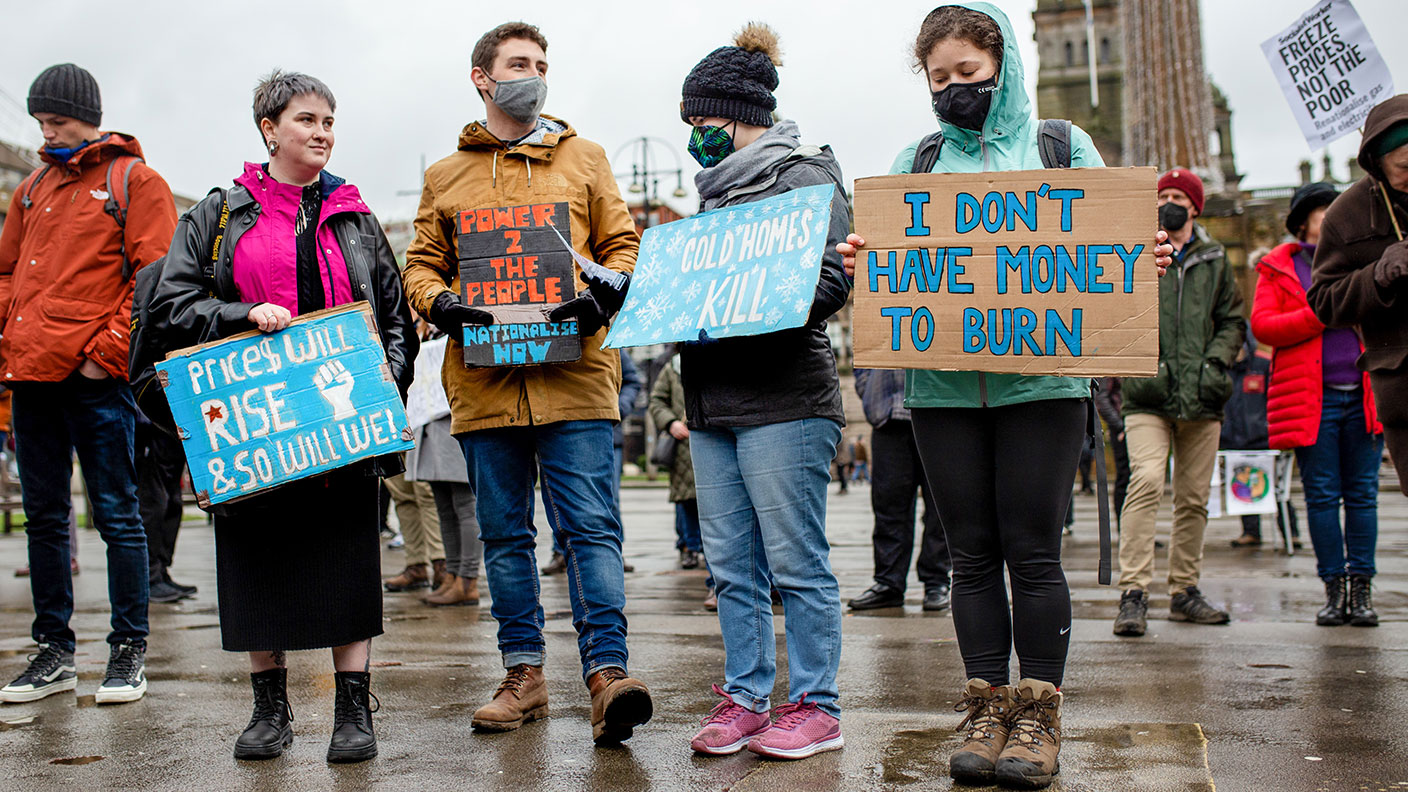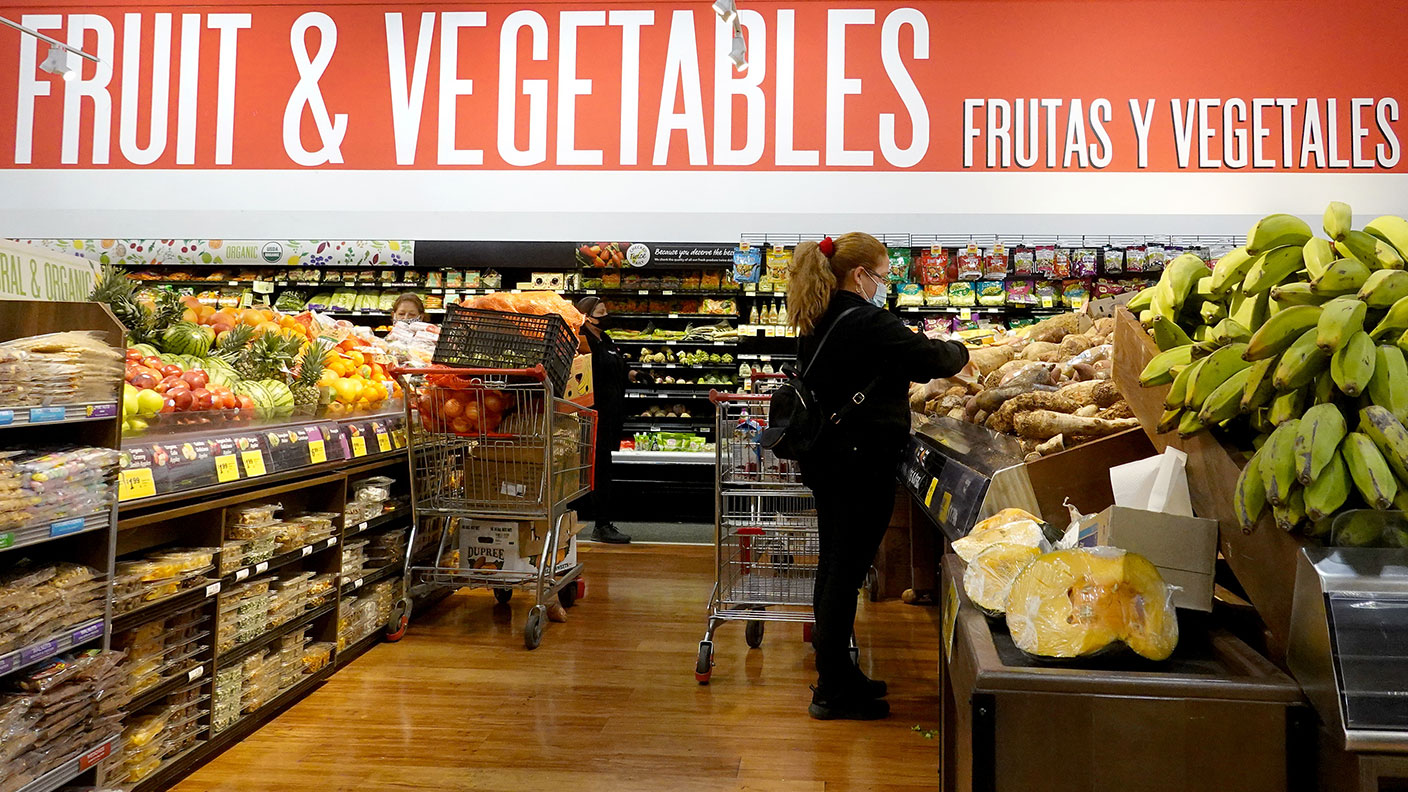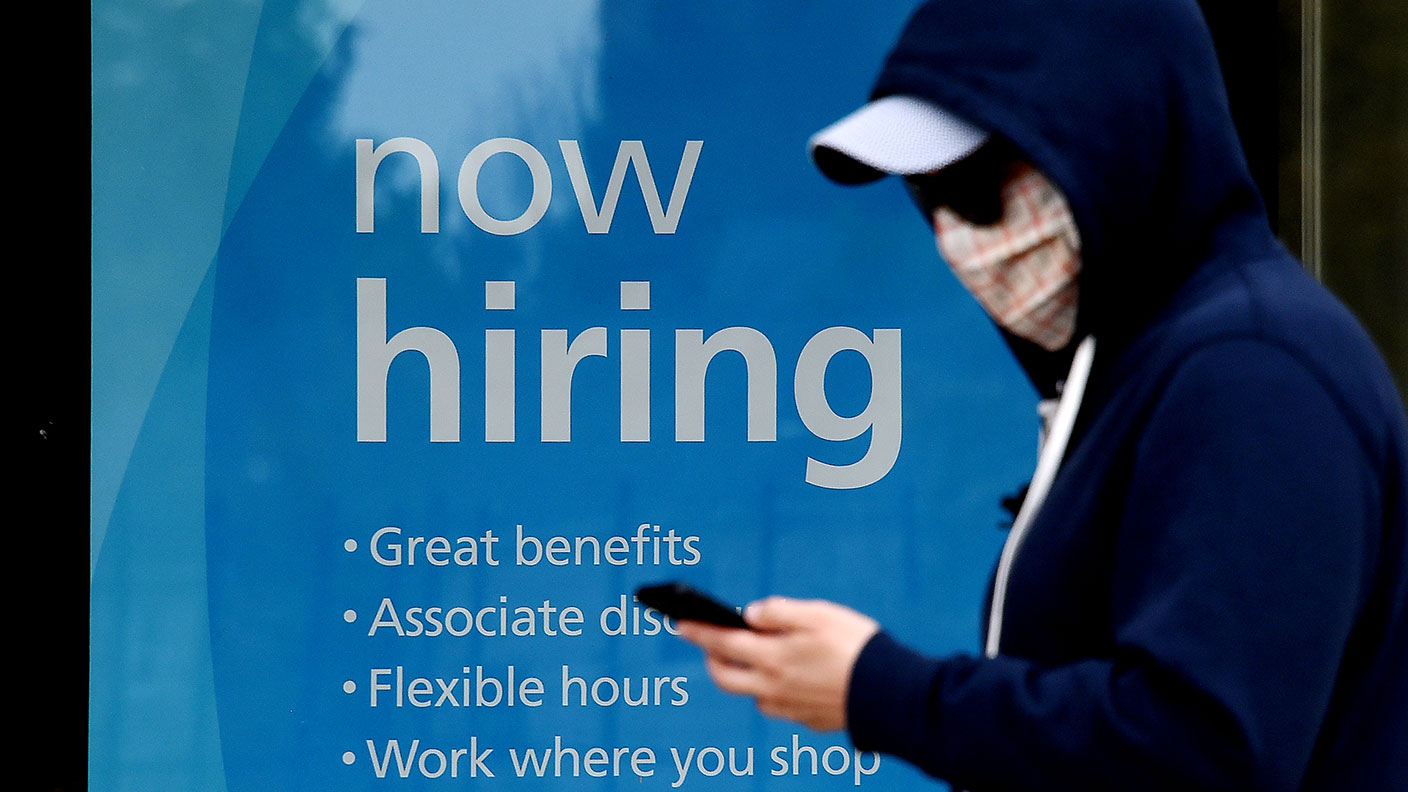The big risk for 2020: what if everything goes right?
Markets are positioned for a low-growth, low-rate world, says John Stepek. What if we get the opposite? Markets could get a nasty shock.

Get the latest financial news, insights and expert analysis from our award-winning MoneyWeek team, to help you understand what really matters when it comes to your finances.
You are now subscribed
Your newsletter sign-up was successful
Want to add more newsletters?

Twice daily
MoneyWeek
Get the latest financial news, insights and expert analysis from our award-winning MoneyWeek team, to help you understand what really matters when it comes to your finances.

Four times a week
Look After My Bills
Sign up to our free money-saving newsletter, filled with the latest news and expert advice to help you find the best tips and deals for managing your bills. Start saving today!

Britain's resounding election result, in favour of clearing the Brexit uncertainty and avoiding a socialist realignment of the economy, has sent UK markets soaring.
We'll have a lot more on the specific investment implications of the UK's general election in this week's issue of MoneyWeek magazine, out on Friday. If you're not already a subscriber, then get your first 12 issues for £12 here.
But it's not just the UK.
MoneyWeek
Subscribe to MoneyWeek today and get your first six magazine issues absolutely FREE

Sign up to Money Morning
Don't miss the latest investment and personal finances news, market analysis, plus money-saving tips with our free twice-daily newsletter
Don't miss the latest investment and personal finances news, market analysis, plus money-saving tips with our free twice-daily newsletter
The US also hit record highs at the end of last week, while the eurozone is heading higher too.
There's an element of relief that one of the world's biggest financial centres (London) is still in business, sure.
But a bigger component is probably the fact that China and the US appear to have reached some sort of trade deal.
Oddly enough, this all points to what may be the biggest long-term threat to the current bull market what if everything goes right?
The US and China now have a tentative trade deal
Markets have been vaguely fretting about the state of the relationship between the US and China for several years now. It's not done a lot to hold markets back, in all honesty, but it is a constant niggle at the back of investors' minds.
Similarly, in the UK specifically, people have got on with their lives as Brexit uncertainty has hung over our heads. But it's always been there. It's not exactly conducive to exuberant animal spirits.
And yet, not only has the Brexit outlook suddenly become a lot clearer, but the US and China appear to be coming to terms too.
We have a phase one' deal. It "still has some hoops to pass through", as Arthur Kroeber notes on Gavekal. But it's likely to happen. So what does it do?
New tariffs that were due to kick in on yesterday are being indefinitely deferred. Tariffs imposed on China by the US at the start of September, will be halved, to 7.5%. The earlier tariffs all stay in place.
China says it will more than double imports from the US by 2021. Kroeber suggests this is hard to meet "in the real world". Chinese imports from the US hit $130bn in 2017. The idea that it will be able to boost this by $200bn by 2021 seems unrealistic given that the "biggest previous two-year jump" came in at less than $40bn.
Thirdly, China has made small moves towards being more respectful of intellectual property rights.
As this list suggests, it's not that radical a deal. Also, like it or not, China and the US are firmly in competition and that will continue. The technology war in particular, will prove to be a long-term sticking point.
However, the two sides have moved closer. And for now at least, any deal is better than no deal. As John Authers points out on Bloomberg, the US dollar weakened and the Chinese yuan strengthened on the deal. Those moves point to markets cheering the outcome.
Markets aren't positioned for a happy ending
Why does any of this matter? Or rather, why is it anything to be concerned about?
I'm more than happy for the good times to roll. But you have to remember that markets are currently largely positioned for the opposite. They are positioned for a world in which interest rates never rise again. They are positioned for the "new normal". They are positioned for "secular stagnation".
This is why money has flooded into ridiculous blue-sky nonsense pitched by charismatic salespeople like WeWork, for example while companies that make money in the here and now are mostly priced as though a recession is coming any second.
The thing is this: what if the manufacturing cycle really does turn up, and China gets back on its feet? What if companies both in the UK and in the EU decide that they can get on with life now that a Brexit pathway is clearer? What if the US and China decide to rub along a little more closely?
None of those things are deflationary or recessionary or even stagnation-ary. If global demand is greater than expected then that points to higher oil prices for a start. It also points to even more pressure on labour markets whatever spare capacity we've still got will surely be deployed sharpish.
I'm not saying that we're definitely heading for a boom. But the chances of one happening are a lot higher than markets are currently pricing in.
So what happens if it all goes right? It'll mean big changes for markets, that's for sure. Those who are betting that inflation is dead in the water, or who haven't seen a developed nation with interest rates above 3% in their entire adult lifetime, might get quite a nasty shock.
In all, I suspect that 2020 is going to be a year full of surprises, threats you'll have to avoid, and opportunities that you won't want to miss. So remember if you're not already a subscriber, you can pick up your first 12 issues of MoneyWeek magazine for £12 here.
Get the latest financial news, insights and expert analysis from our award-winning MoneyWeek team, to help you understand what really matters when it comes to your finances.

-
 Should you buy an active ETF?
Should you buy an active ETF?ETFs are often mischaracterised as passive products, but they can be a convenient way to add active management to your portfolio
-
 Power up your pension before 5 April – easy ways to save before the tax year end
Power up your pension before 5 April – easy ways to save before the tax year endWith the end of the tax year looming, pension savers currently have a window to review and maximise what’s going into their retirement funds – we look at how
-
 Is the US in recession and does it matter?
Is the US in recession and does it matter?Analysis There's a heated debate over whether the US is in recession or not. But why does it matter? John Stepek explains
-
 Has the chancellor done enough to save the UK from recession?
Has the chancellor done enough to save the UK from recession?Analysis UK Chancellor Rishi Sunak announced a new package last week to ease the cost of living crisis. John Stepek explains whether the risk of a UK recession still remains.
-
 Is the UK too open to overseas takeovers?
Is the UK too open to overseas takeovers?Analysis Data shows that the UK is more open to overseas takeovers than other major markets. John Stepek asks: should investors care?
-
 How to manage your money as inflation just keeps rising
How to manage your money as inflation just keeps risingAnalysis Uk inflation is at a 30-year high – and it won't be falling any time soon. So what can you do? John Stepek explains how to manage your money to combat rising prices.
-
 Inflation is going to stay even higher for even longer
Inflation is going to stay even higher for even longerAnalysis Commodity prices – everything from energy to food – are going through the roof. And that’s not likely to end any time soon, says John Stepek. Here's what that means for how you invest.
-
 Inflation is incredibly inconvenient, as we’re all about to learn
Inflation is incredibly inconvenient, as we’re all about to learnAnalysis Inflation doesn't just eat into your wealth, it eats into your time – and can be devastating for those on the lowest incomes. And it's not going away any time soon, says John Stepek. Here's how to invest.
-
 The cost of living crisis is global – US inflation just hit another 40-year high
The cost of living crisis is global – US inflation just hit another 40-year highAnalysis With US inflation running at 7.5%, it’s clear that the cost of living crisis is not confined to the UK. John Stepek looks at the likely reaction from governments and central banks, and what it means for you.
-
 The strong US jobs report is good news for the economy, but not so much for markets
The strong US jobs report is good news for the economy, but not so much for marketsAnalysis January's US jobs report came in much stronger than anyone was expecting, with 467,000 new jobs added to the economy. But things might not be quite as rosy as they seem, says John Stepek. Here's why.